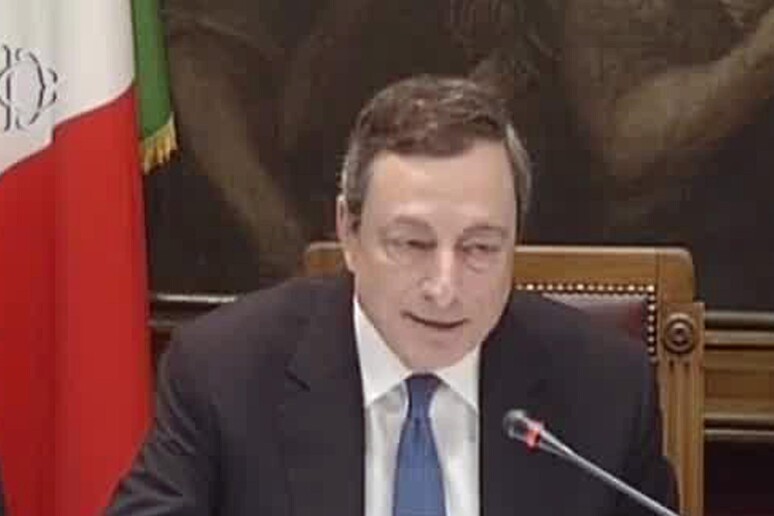The European Central Bank's
quantitative easing program should add one percentage point to
Italy's GDP in 2016, ECB President Mario Draghi told the Lower
House Thursday.
QE should keep borrowing costs low, hold down the exchange
rate, and that will push up economic growth, Draghi said.
Italy's GDP is forecast to rise 1.3% in 2016.
Draghi said that there is no shortage of bonds available
for purchase through the quantitative easing program.
The ECB is aiming to buy 60 billion euros of bonds monthly
for 18 months to stimulate demand and inflation but some critics
have said they are concerned there won't be enough available
paper.
His appearance marked the first time in six years that
Draghi addressed the Italian Lower House, according to Bloomberg
news.
He last spoke to Parliament in 2009 when Draghi was still
head of the Italian central bank, Bank of Italy.
Financial market confidence in Italy's fiscal competence
and its economic prospects has improved significantly, shown by
the narrowing interest-rate spread with Germany, he added.
Draghi recalled the very difficult period in 2011 when the
spread between Italy's benchmark 10-year bond and its German
counterpart widened to about 500 basis points.
In comparison, the spread at midday Thursday stood at about
114 basis points, suggesting that investors no longer demand
very high interest rates in exchange for investing in Italy.
He noted that structural reforms are important to encourage
ongoing growth, as does efforts to help commercial banks reduce
the burden of bad loans.
The ECB "looks very favorably on initiatives to reduce the
weight of impaired (loans) on banks' balance sheets in order to
free up resources," to help businesses, said Draghi.
He said that ECB stress tests on major banks last year has
helped strengthen financial institutions.
He added that he sees "more favourable growth prospects"
for the eurozone.
Meanwhile, that over-regulation of business in Italy forces
firms to remain small.
That lowers productivity for the economy as a whole, and
reducing regulations could increase business size between
8% and 12%, he said.
Meawhile, Draghi added that too often, fiscal regulations
in the eurozone have been ignored.
It might be more useful to replace rules with stronger
institutions, he suggested.
"Fiscal rules in the eurozone were disregarded repeatedly,
lending mutual trust a lot of tension," he said.
He added that the ECB "is in favor of a bad bank in Italy"
that would take on toxic loans, thus freeing up the country's
banks to extend credit.
"Of course the ECB looks with favor on a bad bank in
Italy," Draghi said.
At the same time, the country has too many banks and "there
are strong arguments in favor" of consolidating Italy's banking
system, he said.
Until not too long ago Italy had "750 banks, which means
750 boards of directors, each with a minimum of five members,"
Draghi said.
"The clients pay for this whole system".
ALL RIGHTS RESERVED © Copyright ANSA











